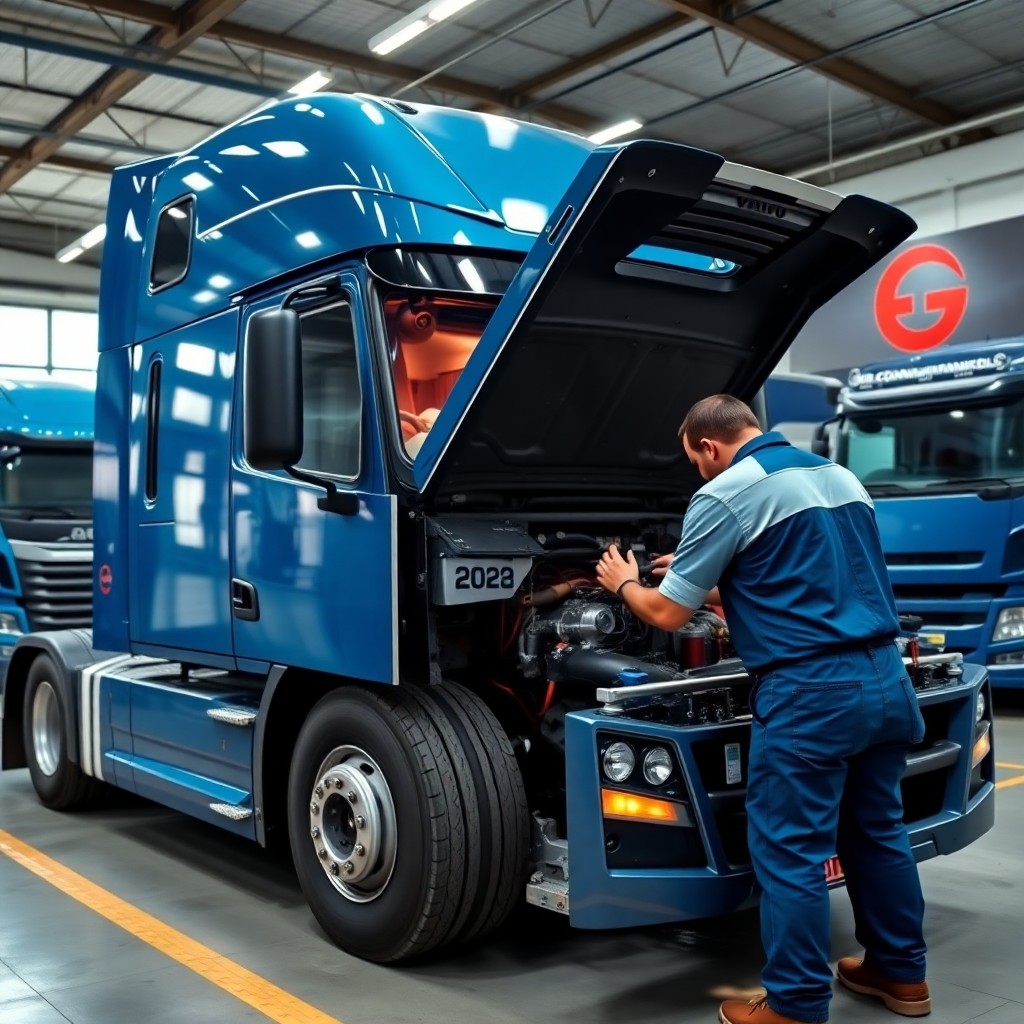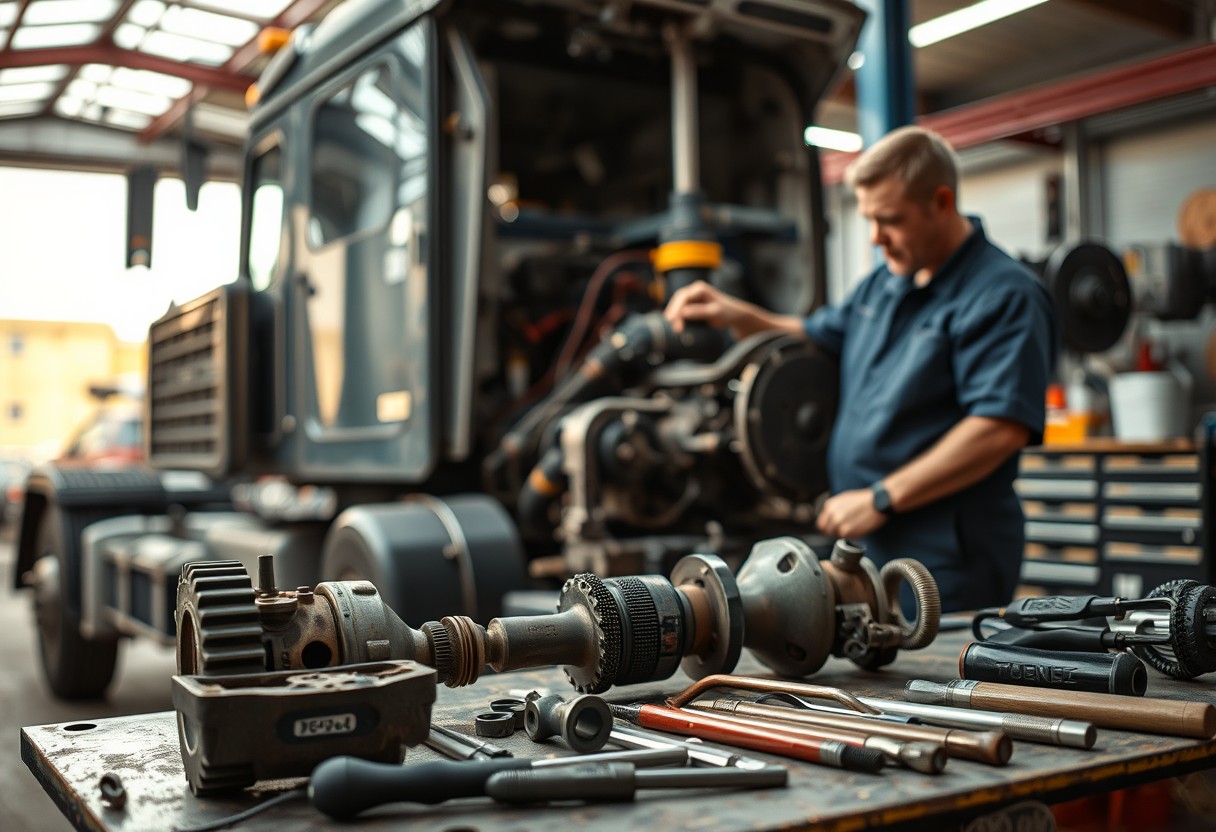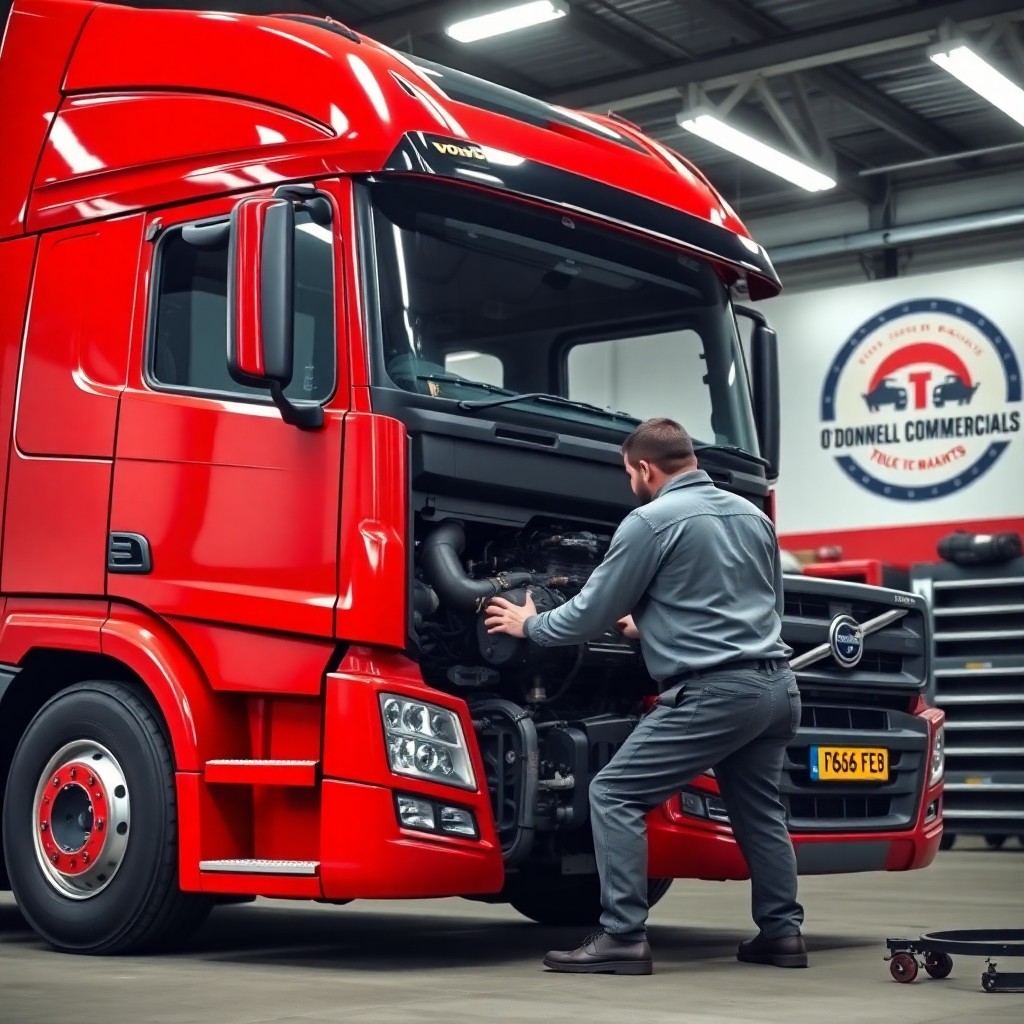Importance of Regular Maintenance
The importance of regular maintenance for your truck and trailer cannot be overstated. Consistent servicing ensures that all parts function optimally, extending the lifespan of your vehicles while minimizing the risk of unexpected failures. By scheduling periodic inspections and servicing, you maintain safety standards and enhance performance, ultimately allowing your business to operate smoothly and efficiently.
Safety Considerations
To ensure the safety of your vehicles and those on the road, regular maintenance is key. Neglecting the upkeep of crucial components can lead to accidents and breakdowns, putting you and other drivers at risk. By regularly checking brakes, tyres, and other critical parts, you can significantly reduce the probability of dangerous situations.Cost-Effectiveness
Regular maintenance is an investment that can save you money in the long run. Scheduling routine check-ups can help identify issues early, preventing more costly repairs down the line. Additionally, well-maintained vehicles consume less fuel and operate more efficiently, which means your overall operational costs decrease. Even when considering the expenses related to regular maintenance, the financial benefits typically outweigh the costs. Investing in parts replacement and timely servicing can prevent major repairs that might arise from neglect. Lower repair bills, improved fuel efficiency, and enhanced vehicle longevity contribute to substantial savings over time, making regular maintenance a wise choice for your truck and trailer.Common Truck and Trailer Parts
Any truck and trailer owner should be familiar with the imperative components that contribute to the safe and efficient operation of their vehicles. Understanding the common parts, such as tyres, brakes, and suspension systems, is vital for effective maintenance and timely replacement to ensure your vehicle performs reliably on the road.Tyres
Truck tyres are one of the most significant features of your vehicle, directly impacting performance, fuel efficiency, and safety. Regularly inspecting tyre tread depth and pressure is imperative for optimum grip and handling. You should consider replacing tyres when tread wear indicators become visible or if you notice any signs of damage, such as cracks or bulges.Brakes
After tyres, brakes are another imperative component that requires your attention. Maintaining your braking system is vital for operational safety, as it directly affects your ability to stop quickly and effectively. For instance, you should check your brake pads regularly, as worn pads can lead to decreased stopping power and greater wear on rotors. It’s advisable to inspect and possibly replace brake pads every 20,000 to 30,000 miles, depending on your driving conditions. Additionally, keep an eye on brake fluid levels and replace the fluid according to your manufacturer’s guidelines to ensure optimal braking performance.Recommended Service Intervals
It is necessary to adhere to recommended service intervals for your truck and trailer parts to ensure optimal performance and longevity. Regular checks and maintenance can prevent costly breakdowns, enhance safety, and ultimately save you money in the long run. Establishing a consistent schedule tailored to your specific usage and manufacturer’s guidelines will help keep your vehicle in top condition.Daily Checks
On a daily basis, you should conduct a quick visual inspection of your truck and trailer. This includes checking fluid levels, inspecting tyres for proper inflation and tread depth, and looking for any signs of leaks or damage. Daily checks help you catch minor issues before they escalate, leading to a safer driving experience.Monthly Inspections
Truck and Trailer Servicing – By performing monthly inspections, you can address more comprehensive aspects of your truck and trailer’s health. These inspections should include the brake system, electrical connections, and overall structural integrity. Assessing these elements can help you identify issues early and maintain a reliable vehicle. Recommended monthly inspections should also include checking the condition of the trailer’s suspension, lights, and couplings. This is an excellent opportunity to ensure your vehicle adheres to safety regulations and operates efficiently, especially if you frequently use it for heavy loads or long-distance transport.12 Week Inspection Maintenance
To keep your truck and trailer running smoothly, invest in 12 week inspection maintenance checks. These thorough assessments should encompass all systems, including engine performance, transmission, and the entire braking system. Annual maintenance allows you to detect and address any potential problems before they lead to significant repairs. The 12 week inspection maintenance procedure typically involves comprehensive diagnostics and professional servicing of all vital components. This not only ensures your vehicle operates efficiently but also extends its lifespan, reducing the likelihood of unexpected downtime in the future. You will be issued with a 12 week inspection report which will be best practice for any RSA roadside checks.Signs That Parts Need Replacement
All truck and trailer owners should be vigilant for signs that indicate parts need replacement. Keeping an eye on your vehicle’s performance, unusual noises, or visible wear can save you from bigger issues down the road. Regular inspections will help you catch these signs early and maintain your vehicle’s efficiency.Wear and Tear Indicators
By closely inspecting your truck and trailer parts, you can identify wear and tear indicators such as cracks, frays, or discoloration. These signs often suggest that the material integrity is compromised and may lead to failures if not addressed promptly.Performance Issues
Performance problems are often a clear indication that parts may need replacement. Signs such as decreased fuel efficiency, unusual vibrations, or difficulty in steering can all signal underlying issues with your vehicle’s components. To maintain optimal performance, you should pay attention to how your truck and trailer handle under regular conditions. If you notice any changes such as sluggish acceleration or strange noises when turning, these could indicate that parts like the brakes or suspension system are wearing out. Promptly addressing these performance issues can prevent further damage and extend the lifespan of your vehicle.
Factors Influencing Service Frequency
For optimal performance and longevity of your truck and trailer parts, several factors influence how often you should service or replace them. These factors include:- Usage conditions
- Mileage
- Load capacity
- Maintenance history
Usage Conditions
For effective maintenance, consider the environment in which you operate. Extreme weather, rough terrains, or frequent stop-and-go driving can wear down your vehicle’s components more quickly than normal conditions. Regular inspections will help identify any wear due to these challenging circumstances.Mileage
For your truck and trailer, mileage plays a significant role in determining service intervals. Regularly tracking the miles you cover can help you decide when to perform maintenance or replace parts. This proactive approach ensures that you address wear and tear before they lead to more extensive issues. Frequency of service based on mileage is typically recommended. For example, many experts suggest checking critical components every 5,000 to 10,000 miles, depending on your vehicle’s make and model. Staying on schedule with these recommendations helps maintain safety and efficiency while minimizing the risk of unexpected breakdowns.Professional vs. DIY Maintenance
Despite the temptation to save money by handling maintenance yourself, it’s vital to weigh the benefits of both professional service and DIY efforts. While doing it yourself can be rewarding, professionals bring expertise and specialized tools that can ensure your truck and trailer parts are serviced correctly and safely, minimizing the risk of errors.
Benefits of Professional Service Truck and Trailer Servicing
Professional maintenance offers reliability and peace of mind. Experts have the training and experience to identify potential issues early, helping to prevent more costly repairs down the line. They also keep up with the latest industry standards and techniques, ensuring that your vehicle operates efficiently and remains compliant with any regulations.When to Do It Yourself
Between minor repairs and routine inspections, you might find opportunities to conduct maintenance yourself, especially if you have some mechanical knowledge. Knowing your capabilities can save you time and money on straightforward tasks. But it’s vital to assess your skills honestly. If you’re comfortable with basic tasks like changing oil, rotating tires, or replacing air filters, DIY maintenance can be an excellent way to keep your truck or trailer in good shape. However, for more complex issues or specialized repairs, it’s wise to seek professional assistance to ensure safety and reliability.Truck and Trailer Servicing
Maintaining optimal performance of your truck and trailer parts requires regular servicing and timely replacements. You should inspect important components like brakes, tyres, and fluids every 5,000 to 10,000 miles, while more significant parts may need 12 week inspections or based on usage. Keeping a detailed maintenance schedule will help you avoid unexpected breakdowns and ensure safety on the road. Staying proactive in your approach will ultimately save you time and money while prolonging the life of your equipment. O’Donnell Commercials Truck and Trailer Parts, Donegal, Ireland.- Delivering throughout Ireland and to the UK daily
- Phone: 074 93 90122
- sales@odonnellcommercials.ie
- Taking bookings for 12 Week Inspections

